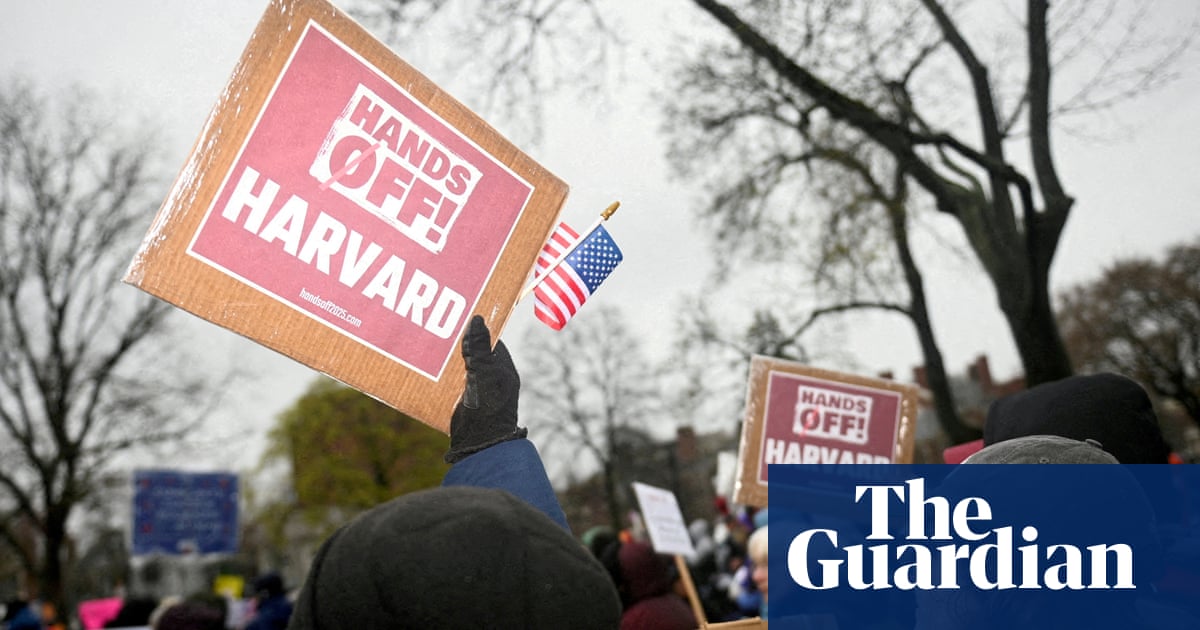The US Department of Education informed Harvard University on Monday that it was ending billions of dollars in research grants and other aid unless the school accedes to a list of demands from theTrump administrationthat would effectively cede control of the nation’s oldest and wealthiest university to the government.
The news was delivered to Dr Alan Garber, Harvard’s president, in a deeply partisanletterfrom Linda McMahon, the education secretary, which she also posted on social media.
“This letter is to inform you that Harvard should no longer seek grants from the federal government, since none will be provided,” McMahon wrote.
The main reason for the crackdown on Harvard is the school’s rejection ofa long list of demandsfrom the Trump administration’s antisemitism taskforce, prompted by campus protests against Israel’s brutal military campaign in Gaza following the Hamas-led attacks of 7 October 2023. McMahon also accuses the university of “a systematic pattern of violating federal law”.
As Garberexplainedin a message to the Harvard community last month, the university decided to sue the federal government only after the Trump administration froze $2.2bn in funding, threatened to freeze an additional $1bn in grants, “initiated numerous investigations of Harvard’s operations, threatened the education of international students, and announced that it is considering a revocation of Harvard’s 501(c)(3) tax-exempt status”.
The government’s “sweeping and intrusive demands would impose unprecedented and improper control over the university”, Garber wrote.
In itslawsuit against the Trump administration, Harvard said the government’s funding cuts would have stark “real-life consequences for patients, students, faculty, staff [and] researchers” by ending crucial medical and scientific research.
The text of McMahon’s letter, much like a Truth Social post fromDonald Trump, is littered with all-caps words. “Where do many of these ‘students’ come from, who are they, how do they get into Harvard, or even into our country – and why is there so much HATE?”
“Harvard University has made a mockery of this country’s higher education system. It has invited foreign students, who engage in violent behavior and show contempt for the United States of America, to its campus,” McMahon claims.
The university recently publishedits own, in-depth investigationof allegations that Gaza solidarity protests had crossed the line into antisemitism, and a second that looked at anti-Muslim, anti-Arab, and anti-Palestinian bias.
But McMahon’s letter is not mainly about the claim that Jewish students feel unsafe at Harvard – a view the school’s president, who is himself Jewish, has some sympathy with – but is filled with extended diatribes about a series of other grievances, including: the supposed far-left politics of Penny Pritzker, a member of the university’s governing board who previously served as US commerce secretary during the Obama administration; the complaints of Harvard alumnus and Trump supporter Bill Ackman; what McMahon calls the “ugly racism” of Harvard’s efforts to diversify its student body; complaints about what Fox News has termed a “remedial math” course which is intended to address gaps in new students’ math skills following the Covid pandemic; accusations that the Harvard Law Review hasdiscriminated against white authors; and two brief fellowships the Harvard TH Chan School of Public Health offered to the former mayors of New York and Chicago, Bill de Blasio and Lori Lightfoot.
In language that seemed to echo Donald Trump’s own, McMahon told Harvard’s president that De Blasio and Lightfoot, who were recruited to share their experiences of bringinguniversal pre-kindergartento New York, and leading Chicagothrough the pandemic, are “perhaps the worst mayors ever to preside over major cities in our country’s history”.
“This is like hiring the captain of the Titanic to teach navigation,” McMahon wrote.
“Harvard will cease to be a publicly funded institution, and can instead operate as a privately-funded institution, drawing on its colossal endowment, and raising money from its large base of wealthy alumni,” McMahon wrote. “You have an approximately $53bn head start.”
